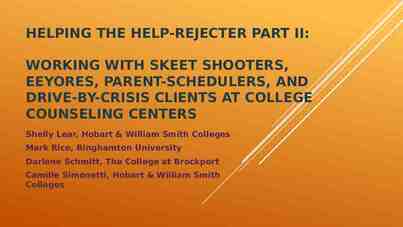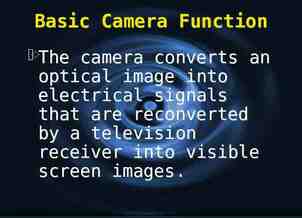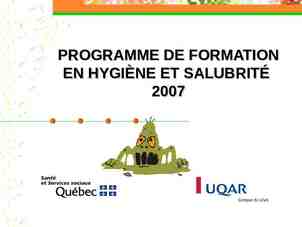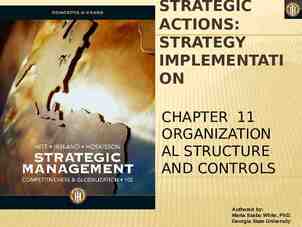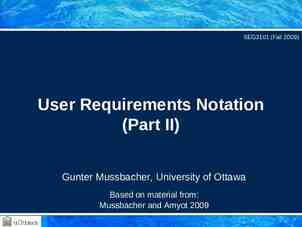Effective and Reliable End-to-End TWS: Regional and National
14 Slides7.45 MB

Effective and Reliable End-to-End TWS: Regional and National Exercises and PostExercise Evaluations Laura Kong Director, UNESCO IOC ITIC Trinidad, June 2007 1

Training Exercises Goal: Goal: To identify, evaluate, and improve organizational weaknesses / gaps in Plans, Policies, Standard Operating Procedures, Communications, Interagency Coordination Purpose: To evaluate the ability to respond to a local, regional, or ocean-wide tsunami 2

Tsunami Exercises What: Test communications Review Standard Operating Procedures Promote Emergency Preparedness How: 5 Types of Tsunami Exercises ”Orientation” Workshop, Drill, Tabletop, Functional, Full Scale Media: Invite to cover exercise to promote public awareness 3

Type #1 Exercise “Orientation” Workshop Simple Workshop: foundation for comprehensive exercise program Brings together organizations (government, NGO’s, private sector) in developing emergency response planning, problem solving, SOP’s, and resource integration 4

Type #2 Exercise “DRILL” Drills involve emergency response of single organizations, facilities, or agencies such as a pilot hotel, school, village, etc. Drills involve review and testing of internal communications and/or field activities. Limited public evacuation may or may not be conducted. 5

Type #3 Exercise “Tabletop” Involves many local organizations seated in a large room. Informal, slow-paced atmosphere. A simulated tsunami scenario is introduced to participants. Participants will examine, resolve problems, and share their actions based on their organization’s Standard Operating Procedures (SOP’s). 6

Type #4 Exercise “Functional” Exercise Organizations test their SOP’s in real time simulation using actual tsunami bulletins. Should take place at emergency command centers, command posts, master communications centers, etc. Test SOP’s and internal / external communications with other organizations. 7

Type #5 Exercise “Full Scale” Climax of progressive exercise program Involves actual field mobilization and deployment of response personnel All local command centers activated Tests all aspects of emergency response May or may not include public evacuations 8

Taking Action – What to do MOST TIMELY WARNINGS - HOW? TO ACT FAST WITHOUT CONFUSION, - KNOW WHAT TO DO Develop/implement TWC and TER SOP - PRACTICE Test communications, end-to-end Conduct Drills since tsunamis infrequent BEST, LONG-TERM PREPAREDNESS - HOW? BUILD TSUNAMI ADVOCACY GROUPS - USE TO SUPPORT DRILLS - Resilient self-motivated, People-centered 9

Taking Action – What to do Timely Warnings and Response – How? Need to act (fast) without confusion Have and Give clear instruction Quick analysis and evaluation Appropriate decision making needs clear criteria Delegated Authority - No time to get a highest level approval/instruction No hesitation to update Same quality at any time and every time 10

What are Standard Operating Procedures (SOPs) ? Set of written instructions Document a routine, or repetitive activity followed by organization. SOP - real time procedure followed in case of an emergency. Detail work processes conducted or followed within an

End-to-End Tsunami Warning Systems Upstream: Detection, verification, threat evaluation, tsunami forecast, warning dissemination Must have same quality every time Downstream: Delivery of public safety message, Prepare / carry out standardized reaction (evacuate people, announce ‘all-clear’ when safe to return) 12

What to consider - what to test TWC: “Upstream” process Coordination and information flow (type, content, timeline) with NDMO Iterative process (warning, update, cancellation) TER: NDMO/EOC receipt, interpret, decide, notify Notify Responders, Decision-makers, Public Recommend Public Safety Action Implement / coordinate Action Inform on ‘All-Clear’ for safe return Initiate Search-and-Rescue, etc. 13

Thank You IOC Executive Secretary: IOC Paris (Tsunami): Head Dr. Patricio Bernal Dr. Peter Koltermann, Masahiro Yamamoto, Senior Tsunami Advisor CARIBE-EWS: http://ioc3.unesco.org/cartws/icg-ii Secretariat: Bernardo Aliaga [email protected] Chair: Trinidad & Tobago Vice-Chair: USA, Venezuela IOC ITIC: Director [email protected] Dr. Laura Kong,


